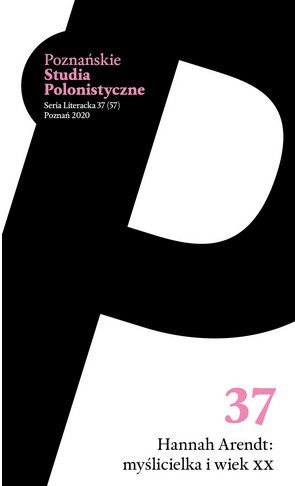Clandestine Transmission: Rosenzweig and Arendt
Clandestine Transmission: Rosenzweig and Arendt
Author(s): Rafał ZawiszaSubject(s): Political Philosophy, Contemporary Philosophy, Philosophy of Religion, Politics and religion
Published by: Wydawnictwo Poznańskie Studia Polonistyczne
Keywords: Hannah Arendt; Franz Rosenzweig; birth; post-secularism; new thinking;
Summary/Abstract: The text deals with the question whether Hannah Arendt was influenced by Franz Rosenzweig’s Der Stern der Erlösung (1921) before writing Der Liebesbegriff bei Augustin (1929). Instead of building general analogies, I studied two very specific topics – the world and birth – to demonstrate that Arendt repeated almost verbatim Rosenzweig’s entire peculiar argumentation which played the notions of God and nature against each other to combat their overwhelming power and to make room for the contingency of the world and the novelty of each birth. Facing the helplessness of a philosophy which ignored mortality, Rosenzweig cried out the lament of the finite being. Philosophy, with its predilection for totality, lost adequate proportions to reflect on life. Arendt revived this paradigmatic reorientation, but with a significant twist: for her, birth and the world meant more than God for Rosenzweig. Both thinkers projected a language between philosophy and theology, inciting the two idioms to a fruitful debate.
Journal: Poznańskie Studia Polonistyczne. Seria Literacka
- Issue Year: 2020
- Issue No: 37
- Page Range: 163-182
- Page Count: 20
- Language: English

